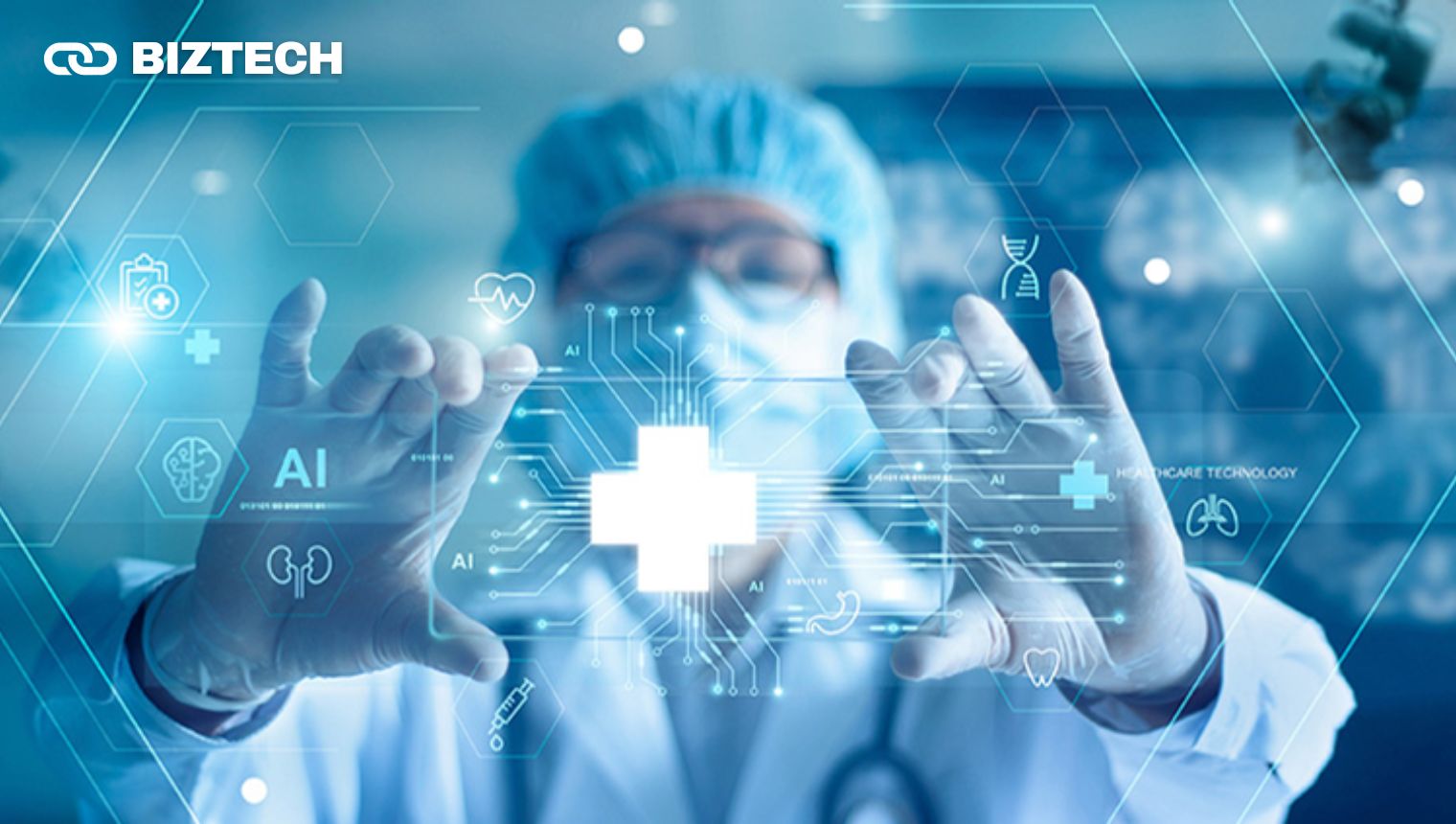Stay connected with BizTech Community—follow us on Instagram and Facebook for the latest news and reviews delivered straight to you.
Artificial intelligence (AI) is revolutionizing the healthcare industry in ways that were once thought to be the domain of science fiction. With the ability to analyze massive datasets, identify patterns, and provide insights that can improve patient outcomes, AI is being increasingly used in medical diagnostics and personalized treatments. From diagnosing diseases faster and more accurately to creating tailored treatment plans for individual patients, AI is transforming healthcare delivery. As we explore the breakthroughs AI is making in healthcare, it becomes clear that this technology holds the potential to improve global health outcomes while reducing costs and inefficiencies.
The Rise of AI in Healthcare
AI’s growing role in healthcare is largely driven by its ability to process and analyze vast amounts of data more quickly and accurately than humans. This has become especially important in the era of big data, where medical records, diagnostic images, and genomic data are now being digitized at unprecedented rates. AI algorithms can sift through this information to find patterns that may not be immediately obvious to human doctors, enabling faster diagnoses and more accurate predictions about disease progression.
In recent years, several areas of healthcare have seen significant advancements through AI. Machine learning algorithms, a subset of AI, have become especially useful for analyzing medical images, identifying abnormalities in scans, and predicting patient outcomes based on clinical data. Meanwhile, natural language processing (NLP), another AI technique, is being used to analyze electronic health records (EHRs) and identify key information that may inform treatment decisions. In addition to these diagnostic capabilities, AI is also driving innovation in personalized medicine, offering the potential to tailor treatments to the specific genetic and clinical characteristics of individual patients.
AI in Medical Diagnostics
One of the most significant breakthroughs AI has made in healthcare is in medical diagnostics. Traditionally, diagnosing diseases has relied on human expertise, often involving time-consuming and costly tests. AI is changing this by providing tools that can diagnose diseases more quickly and, in some cases, more accurately than doctors.
1. AI in Medical Imaging
AI’s impact on medical imaging is particularly profound. Machine learning models are now being used to analyze X-rays, MRIs, CT scans, and other imaging technologies to detect conditions such as cancers, fractures, and cardiovascular diseases. For example, in the field of radiology, AI algorithms are helping to detect early-stage lung cancer by analyzing CT scans and flagging areas that may require further examination. This early detection is crucial for improving patient survival rates, as treatment is most effective when initiated at the earliest stages of a disease.
One AI tool that has gained significant attention is Google’s DeepMind, which has developed algorithms capable of detecting over 50 eye diseases from optical coherence tomography (OCT) scans with accuracy comparable to leading specialists. By quickly identifying retinal diseases that could lead to blindness, AI-powered systems like these are enhancing the ability of healthcare professionals to provide timely, effective treatment.
2. AI in Pathology and Disease Detection
AI is also making strides in pathology, where it is being used to analyze tissue samples and detect abnormalities. AI-powered systems can identify cancerous cells in histopathology slides with remarkable precision, helping pathologists diagnose cancers like breast and prostate cancer more quickly. By speeding up the diagnostic process, AI is enabling earlier treatment interventions, improving patient outcomes.
In addition to cancer detection, AI is being used to monitor and predict the progression of chronic diseases. For instance, in cardiology, AI algorithms are analyzing heart scans to predict the likelihood of heart attacks and other cardiovascular events. AI models can also interpret electrocardiograms (ECGs) to identify arrhythmias, such as atrial fibrillation, which, if left untreated, can lead to stroke.
3. AI in Genomics
AI’s ability to analyze vast amounts of genetic data is opening new possibilities in genomics. By analyzing an individual’s genome, AI can identify mutations associated with specific diseases and predict a patient’s risk of developing conditions like cancer, Alzheimer’s disease, or diabetes. AI’s role in genomics is crucial to advancing the field of precision medicine, where treatments are tailored based on a patient’s genetic makeup.
In cancer care, for example, IBM Watson for Genomics uses AI to analyze large datasets of medical literature and clinical trial information to identify the most effective treatment options based on a patient’s genetic mutations. This level of personalized care is enabling doctors to create more targeted treatment plans, improving the chances of successful outcomes for patients with complex diseases.
AI in Personalized Medicine
Personalized medicine, also known as precision medicine, refers to medical care that is tailored to each patient’s individual characteristics, including their genetic makeup, lifestyle, and environment. AI is at the forefront of making personalized medicine a reality by helping doctors develop treatment plans that are uniquely suited to each patient’s specific needs.
1. Tailoring Treatments Based on Genetic Profiles
One of the most promising applications of AI in personalized medicine is its ability to analyze genetic data to predict how individual patients will respond to specific treatments. For example, some patients respond better to certain cancer treatments than others due to differences in their DNA. By analyzing a patient’s genetic profile, AI can help doctors determine which therapies are most likely to be effective, thereby improving treatment outcomes and reducing unnecessary side effects.
AI is also being used in pharmacogenomics, the study of how genes affect a person’s response to drugs. AI algorithms can analyze a patient’s genetic data to predict how they will metabolize certain medications, enabling doctors to prescribe the most effective drug and dosage. This is particularly important in conditions like cancer, where personalized drug regimens can significantly improve treatment efficacy.
2. AI in Drug Discovery and Development
AI is also transforming drug discovery by accelerating the development of new treatments. Traditional drug discovery is a lengthy and expensive process that often takes years of research and billions of dollars in investment. AI is streamlining this process by identifying potential drug candidates faster and more accurately. AI algorithms can analyze vast datasets of chemical compounds and biological information to predict which compounds are likely to be effective in treating specific diseases.
One notable example is the use of AI by companies like BenevolentAI and Insilico Medicine. These companies are leveraging AI to identify new drug candidates for diseases such as Parkinson’s, Alzheimer’s, and COVID-19. By analyzing molecular structures and identifying promising drug targets, AI is speeding up the development of life-saving treatments.
3. AI in Chronic Disease Management
AI is pivotal in managing chronic diseases like diabetes, hypertension, and asthma. By analyzing patient data, AI-powered systems can predict disease flare-ups and suggest interventions before they occur. For example, AI can monitor glucose levels in diabetes patients, predicting when they are likely to experience spikes or drops in blood sugar levels and recommending dietary or medication adjustments in real time.
In mental health care, AI-driven apps and tools are helping patients manage conditions such as depression and anxiety by offering personalized recommendations for coping strategies and mental health resources based on individual symptoms. These tools are not only improving patient outcomes but also easing the burden on healthcare providers by enabling patients to manage their conditions more effectively.
The Ethical and Privacy Concerns of AI in Healthcare
While AI holds tremendous promise for healthcare, its widespread adoption also raises important ethical and privacy concerns. The use of AI in analyzing sensitive patient data, such as medical records and genetic information, has sparked concerns about data security and patient privacy. As AI systems become more integrated into healthcare, robust regulatory frameworks are needed to ensure that patient data is protected and used responsibly.
Additionally, the “black box” nature of some AI algorithms—where the decision-making process is not transparent—raises ethical questions about accountability and bias. For example, if an AI system misdiagnoses a patient, who is responsible for the error? Furthermore, there is a risk that AI systems could perpetuate existing biases in healthcare, particularly if they are trained on datasets that reflect historical inequalities in treatment.
To address these challenges, AI developers and healthcare providers must work together to ensure that AI systems are transparent, fair, and accountable. Implementing ethical guidelines and regulations will be crucial in ensuring that AI is used to benefit all patients, regardless of their background or socioeconomic status.






